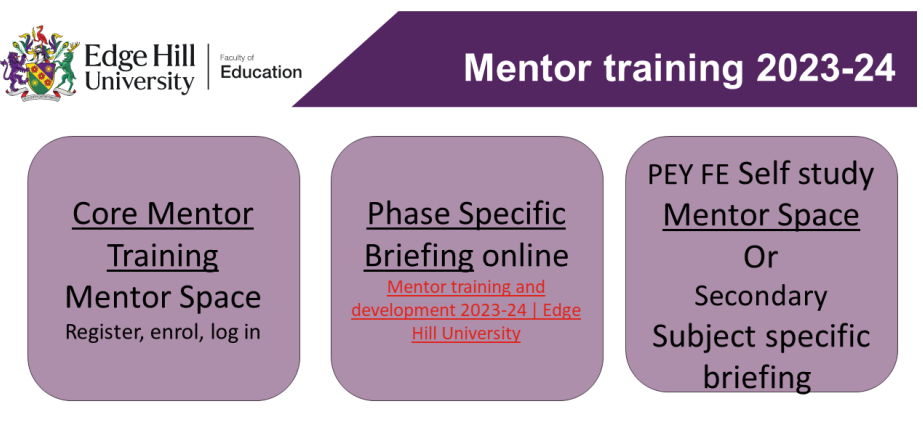Mentor development and support
The Faculty offers a comprehensive and flexible package of mentor training and development opportunities.
The Edge Hill University Core Mentor Training for 2023/24 is comprised of three elements. All mentors hosting a trainee must complete all three elements of mentor development training.

Unit One – Principles of Mentoring
This unit provides mentors with the research evidence and underlying principles for mentoring at Edge Hill University. It considers the evidence base for mentoring drawing on the Sims et al., 2021 characteristics of effective teacher professional development.
Unit Two – Models of Mentoring
The Edge Hill models of mentoring unit moves the mentoring of our trainees away from a model of internship (where trainees learn ‘on the job’ by receiving feedback based on naturally occurring experiences) and towards one of instructional coaching. This unit also introduces mentors to the Edge Hill University vision and values, our approach to the core content framework and the Weekly Cycle for Mentoring approach.
Mentor Development Self-study
Using the Mentor Space, mentors familiarise themselves with the partnership agreement, curriculum documentation and professional practice forms.

